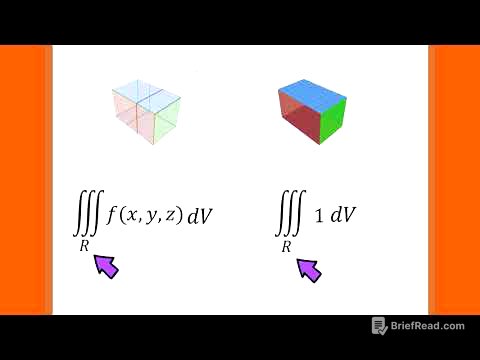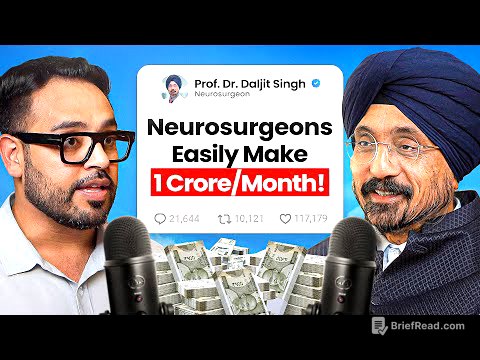TLDR;
This lesson by Learnex focuses on expanding your English vocabulary by learning phrasal verbs with "get." It explains how adding prepositions to "get" changes its meaning from the basic "meet" or "take" to more complex actions and situations. The video covers 10 common phrasal verbs with "get," providing clear explanations and examples for each, and emphasizes the importance of learning phrasal verbs to improve English fluency and reach an advanced level. The lesson concludes with a tip to learn and practice at least one phrasal verb daily to enhance language skills.
- Get is a common verb that changes meaning when combined with prepositions, forming phrasal verbs.
- Phrasal verbs are essential for improving English fluency and reaching an advanced level.
- The lesson covers 10 common phrasal verbs with "get," providing clear explanations and examples for each.
Meaning Of GET (Phrasal Verbs) [0:08]
The video introduces the concept of phrasal verbs using the word "get." While "get" primarily means "to meet" or "to take," its meaning changes when combined with prepositions like "on," "off," "in," or "out." These combinations create phrasal verbs, which are essential for improving English and advancing from a basic to an advanced level.
Get On [1:46]
"Get on" means to enter a train, plane, or bike—any vehicle you can walk on or climb onto. For example, "I'm getting on a plane; I will call you later."
Get Off [2:32]
"Get off" is the opposite of "get on," meaning to get down from a train, bus, plane, or bike. For example, "I'm getting off the bus in five minutes" or "Get off at Gandhinagar station; my house is a 5-minute walk away."
Get In [3:05]
"Get in" means to enter something like a car or a swimming pool. It is used for vehicles you can sit in but not walk around inside. For example, "Get in the car and put on your seatbelt" or "The water is freezing; don't get in the pool right now."
Get Out [4:01]
"Get out" is the opposite of "get in," meaning to exit a place like a swimming pool or a car. For example, "We have reached; let's get out of the car quickly" or "Get out of the pool and dry yourself."
Get Back [4:31]
"Get back" means to return from somewhere. For example, "Should you wait for us? We will get back by 6:00 PM" or "I got back from Singapore last evening."
Get Over [5:08]
"Get over" means to recover from an illness or a difficult situation. For example, "I had the flu last week, but I have gotten over it" or "People are getting over the financial crisis after the depression."
Get Along With [6:16]
"Get along with" means to have a good relationship with someone. For example, "I get along with most of my colleagues at work pretty well." This is a separable phrasal verb, as in "I get along well with them."
Get Across [7:18]
"Get across" means to successfully communicate an idea. For example, "My idea came across well." This is also a separable phrasal verb. Another example, "We need to get our idea across to the investors if we want to seek funding."
Get By [8:16]
"Get by" means to survive or manage. For example, "I am just getting by with a new life in New Zealand" or "Until I get a new job, I will get by with the same loose work." Loose work refers to small jobs done while seeking full-time employment.
Get Through [9:10]
"Get through" means to make contact with someone or strengthen your position. For example, "I finally got through engineering after 24 months of hard work."
Get Away With [9:54]
"Get away with" means to do something wrong and not be punished. For example, "He stole some money from the office but got away with it" or "This time, the politician did not get away with loose remarks on Twitter."
English Tip Of The Day! [10:38]
The tip of the day is to learn at least one phrasal verb every day to make your language more fluid. Advanced English speakers frequently use phrasal verbs. Try to use new phrasal verbs in daily conversations or create sentences with them to fix them in your memory.









